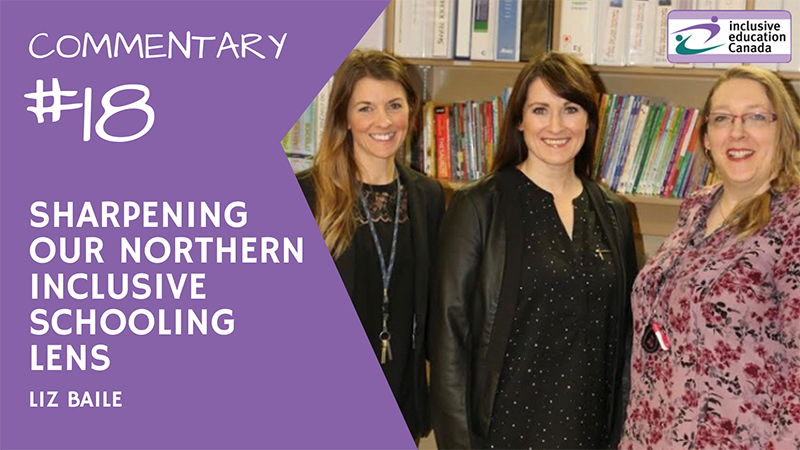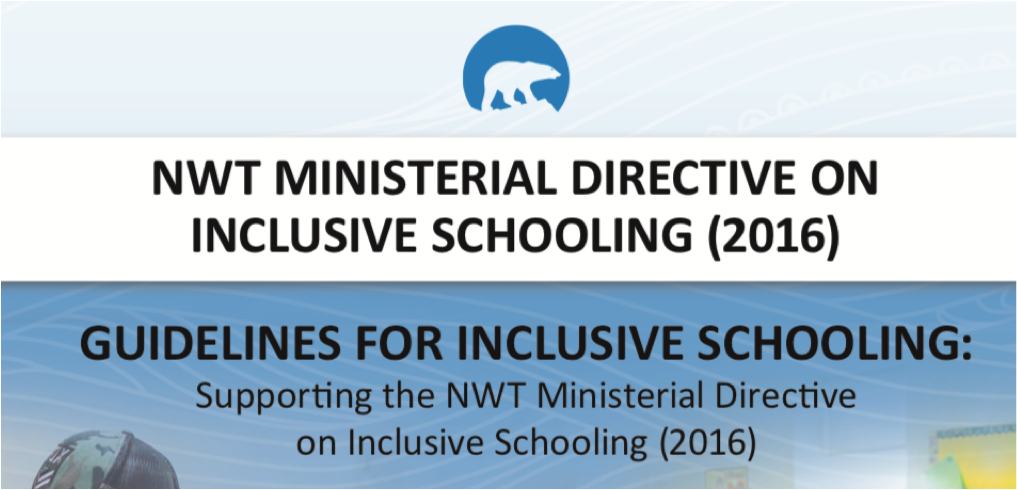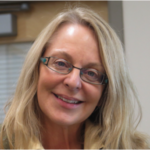 National Inclusive Education Month Commentary #18
National Inclusive Education Month Commentary #18
By Liz Baile, Student Services Coordinator, Yellowknife Catholic Schools
In my office, you will find an orange sticky on my computer screen. The sticky reads, “Inclusive Schooling is the lens, all other actions fit into it. It is how we offer education.” Not sure which workshop it came from or who wrote it, but it does resonate where the Northwest Territories is going with Inclusive Schooling. This quote exemplifies our second year of, “sharpening our inclusive schooling lens” with a new revised Inclusive Schooling directive and training plan.
The revised NWT Ministerial Directive on Inclusive Schooling was completed in 2016. This renewed focus was in response to the need for strengthening teaching practices, overall accountability in inclusive schooling funding, and wellness. During the research stage, valuable conversations began to unfold between district authorities and Education Department officials, especially around roles and responsibilities. Conversations clarified that the roles and responsibilities of everyone involved in supporting students had to be better understood and renewed in every school and in every community across the Territories. There was a definite need to go back and provide common understandings and common language of the roles and how they work together to support students.

Along with the directive, a NWT Program Support Guide, which provides details on the roles and responsibilities of all staff members in meeting student needs, was also developed. The resource contains numerous links to assist school staff in program development. One very important role defined in this guide is the Program Support Teacher (PST). In collaboration with the principal, PSTs provide leadership to school teams and ensure effective inclusive school practice. Program Support Teachers champion and facilitate a wide variety of planning processes and coordinate community services necessary in supporting specific students. They ensure teachers are clear on instructional goals and objectives and have the resources to provide high standard programming for all. An amazing but challenging job!
The NWT Education Department quickly realized the need to increase the number of Program Support Teachers to strengthen teacher collaboration and innovative teamwork. The PST Priority Time Use Guide tool has helped sharpen the focus of the PST role in three main areas and what percentage of time should be spent on it. The areas are: supporting teachers in strengthening instruction, supporting students and planning duties. When school staff comes together they need to focus on actions they can control and have impact on student learning. They need to reflect and discuss: How we are working together? What matters? Where is our instructional focus? More importantly, how do we successfully program for every student in our strength-based approach?
Not only did the Department increase the numbers of PSTs per school throughout the Territories, it also designed a territorial PST training program. Once a year, all the PSTs from across the north come together to learn, share, and network with their regional coordinators. Not an easy feat considering the vastness of our geography. However, it has been very successful and has reduced the sense of isolation, helplessness, and confusion for new and veteran PSTs alike. This commitment to provide specific training to PSTs is a courageous step and there has been recent movement to include principals, teachers, and school counsellors in widening the Inclusive Schooling professional development circle slowly and intently.

The Inclusive Schooling professional development model is enhancing the effectiveness of staff members in different roles. It is also unique because it weaves together actions to target the effects of residential schooling and the resulting trauma that effects individuals and communities. The training helps educators recognize and support the school and communities at this significant time in the North.
The revised directive on inclusive schooling is deepening our commitment the high standards of Inclusive Schooling while strengthening the capacity of northern educators to embrace a 21st century educational mind-set.
Territorial educators have responded to the directive with both enthusiasm and concern. The northern educational landscape is diverse, and the day-to-day challenges are very different and overwhelming at times in every northern community and District Education Authority. Change is hard.
The directive and the new funding formula that goes with it has presented challenges to school and district leaders. The directive encourages leaders to set priorities and focus on how to better support teachers and students. One thing it has clearly done is bring issues about Inclusive Schooling into the open in plain view. Inclusive schooling is now at the centre of northern education and that is exactly where it should be.
Click here to read the NWT Ministerial Directive on Inclusive Schooling Guide.
 Liz Baile is the Student Services Coordinator of Yellowknife Catholic Schools in Yellowknife, the capitol of Canada’s North West Territories. A native of Ontario, Liz has been a teacher, resource teacher, vice-principal and principal in Canada’s north for more than 30 years. Liz served as a key member of the team that developed the Directive and Guide on Inclusive Schooling and has provided training and support to educators throughout the NWT.
Liz Baile is the Student Services Coordinator of Yellowknife Catholic Schools in Yellowknife, the capitol of Canada’s North West Territories. A native of Ontario, Liz has been a teacher, resource teacher, vice-principal and principal in Canada’s north for more than 30 years. Liz served as a key member of the team that developed the Directive and Guide on Inclusive Schooling and has provided training and support to educators throughout the NWT.
